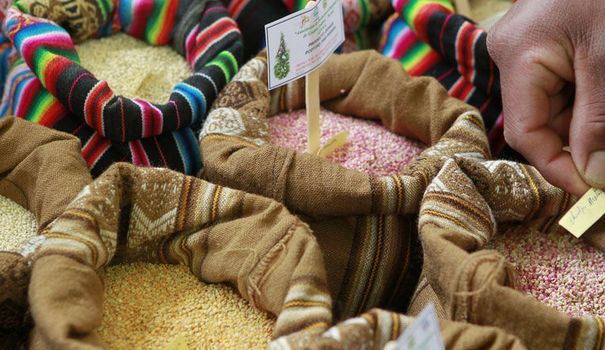Quinoa Tests Well With Celiac Patients: Moderate Levels Of The 'Super-Grain' OK For Those With Gluten Problems

While 2013 was named “The International Year of the Quinoa” by the Food and Agricultural Organization of the United Nations (FAO), some health practitioners worry this highly nutritious grain could have harmful effects on celiac disease symptoms. A study out of the Department of Gastroenterology at King’s College London found that moderate levels of quinoa had little to no effect on celiac patients and failed to exasperate the condition.
Although health care professionals generally recommend quinoa as part of a gluten-free diet, recent studies have determined a storage protein in the “super-grain” that may stimulate immune responses in patients diagnosed with celiac disease. Packed with antioxidants, anti-inflammatory phytonutrients, protein, and even moderate levels of omega-3 fatty acids, quinoa is regarded by the FOA as a food with “high nutritive value."
“The clinical data suggests that daily consumption of quinoa (50 grams) can be safely tolerated by celiac patients,” lead researcher of the study Dr. Victor F. Zevallos said in a statement. “Median values for all the patients’ blood tests remained within normal ranges, and triglycerides and both low and high density lipoproteins decreased.”
Zevallos and his colleagues from the university recruited 19 patients with celiac disease who had their blood count, liver, and renal levels checked before starting the study. Each participant was asked to consume 50 grams of quinoa each day over the course of six week while adhering to a gluten-free diet. A complete histological assessment was performed on 10 of patients in particular before and after they consumed their daily serving of quinoa.
The research team also tested each patient’s diet, serology, gastrointestinal parameters, as well as a complete iron, vitamin B12, serum folate, and lipid profile to track the effects of quinoa over the course of the research. Servings of quinoa were prepared with the cooking method of each patient’s choosing. After the six weeks, researchers noted that the daily consumption of quinoa had no effect on symptoms of celiac disease and was well-tolerated by patients.
“We also found a positive trend toward improved small intestine morphology, particular a mild hypocholesterolemic (very low cholesterol) effect," Zevallos added. "It’s important to note that further studies are needed to determine the long-term effects of quinoa consumptions in people with celiac disease.”
According to the Celiac Disease Foundation, celiac disease is a genetic condition that primarily affects the patient’s small intestine. One out every 100 people across the globe suffers from this autoimmune reaction to dietary gluten, a protein found in grains including wheat, barley, and rye. The only treatment for celiac disease is avoiding all wheat, rye, and barley products such as bread and beer.



























